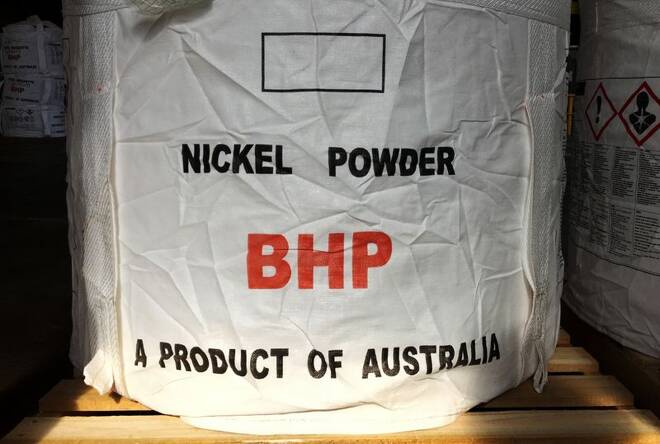Advertisement
Advertisement
BHP reports weaker-than-expected iron ore production on COVID curbs
By:
(Reuters) - BHP Group on Thursday reported flat third-quarter iron ore production from a year earlier, as a ramp up of production at its South Flank operations in Western Australia helped counter the impact of labour shortages.
(Reuters) -BHP Group on Thursday fell short of estimates for iron ore production for the March quarter, as a pandemic-related labour crunch weighed on the miner’s efforts to boost production in the mineral-rich Pilbara region of Western Australia.
The world’s largest listed miner warned June-quarter production of the steel-making commodity is also expected to be impacted by lingering worker absenteeism, but said it remained on track to meet fiscal 2022 costs and volume forecast.
Copper production at BHP’s massive Escondida copper mine in Chile declined 9% to 226.4 thousand tonnes (kt) in the third quarter, primarily due to a reduced workforce from COVID-19 quarantine regulations and public road blockades that affected access to the site for both workers and supplies.
Fiscal 2022 production guidance for the metal was cut to between 1,000 kt and 1,030 kt, from 1,020 and 1,080 kt.
Iron ore production from Western Australia came in at 66.7 million tonnes (Mt) for the period, flat from a year earlier but lower than a consensus estimate of 70 mt compiled by Visible Alpha.
Not until early March did Western Australia lift hard-line border restrictions put in place to curb the spread of the pandemic. The measures have left miners struggling to hire mine workers and train drivers even as pent-up demand fuelled a rally in commodity prices.
Rival Rio Tinto on Wednesday reported lower-than-expected iron ore shipments for the three months to March end and warned of risks from sustained high inflation, a resurgence of COVID-19 lockdowns in China and a prolonged Russia-Ukraine war.
BHP Chief Executive Mike Henry also said market volatility and inflationary pressures have increased further due to the Ukraine crisis.
While conditions are expected to improve during the course of the 2023 calendar year, we anticipate the skills shortages and overall labour market tightness in Australia and Chile to continue in the period ahead, he said.
(Reporting by Harish Sridharan and Savyata Mishra in Bengaluru; Editing by Sriraj Kalluvila)
About the Author
Reuterscontributor
Reuters, the news and media division of Thomson Reuters, is the world’s largest international multimedia news provider reaching more than one billion people every day. Reuters provides trusted business, financial, national, and international news to professionals via Thomson Reuters desktops, the world's media organizations, and directly to consumers at Reuters.com and via Reuters TV. Learn more about Thomson Reuters products:
Did you find this article useful?
Latest news and analysis
Advertisement
